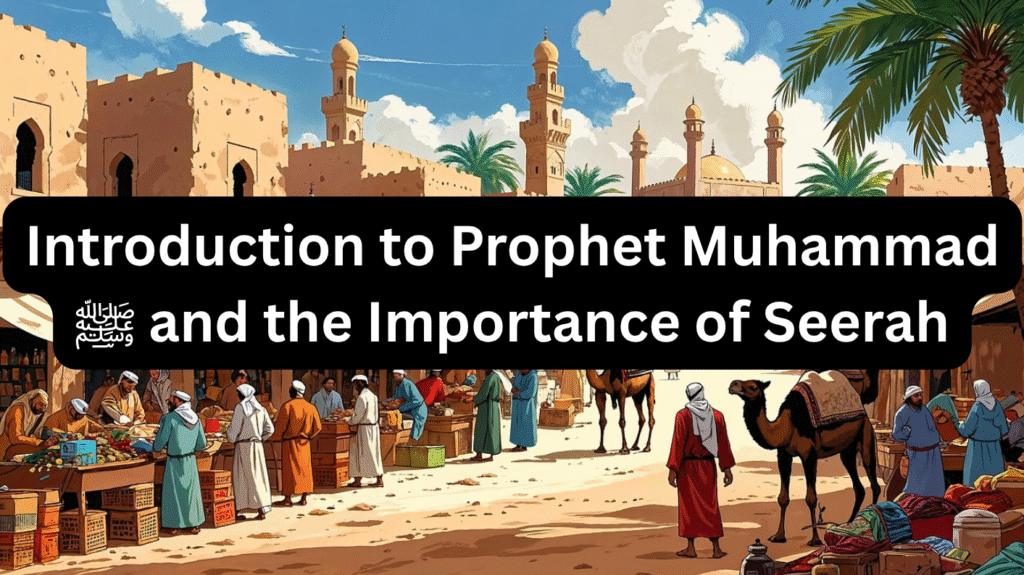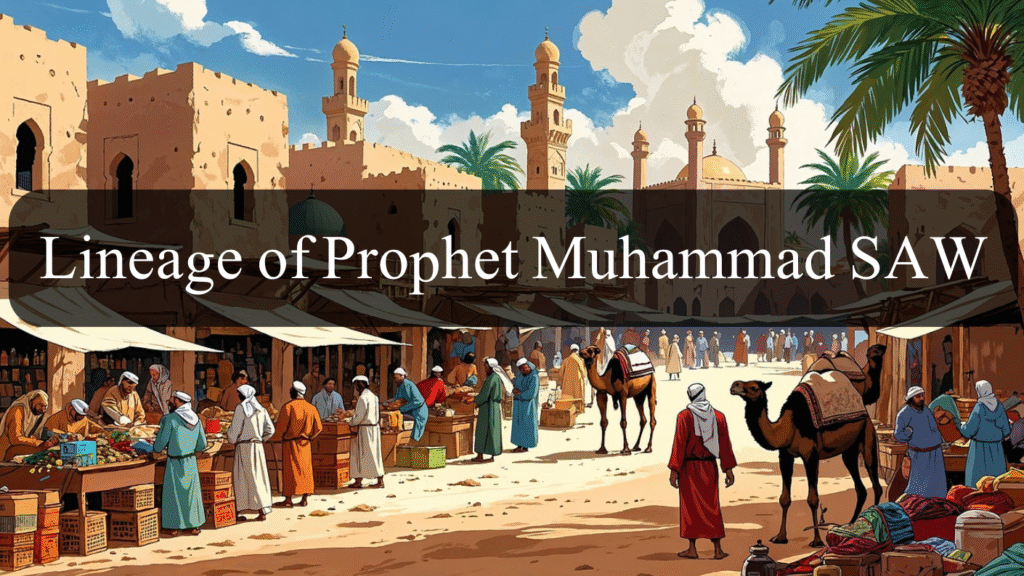Who Are Ahlul Bayt? This sacred term refers to the chosen and purified household of the Prophet Muhammad (ﷺ), revered in Islam for their deep knowledge, piety, and divine favor. Both Sunni and Shia Muslims hold them in the highest esteem, though interpretations of their exact identity vary.
In this comprehensive post, we’ll explore:
✅ The Qur’anic foundation of Ahlul Bayt
✅ The 5 key members and their significance
✅ Their role in preserving Islamic teachings
✅ Sunni and Shia perspectives compared
✅ The obligation to love and follow them
✅ Lessons from their lives for modern Muslims
1. Who Are Ahlul Bayt? The Qur’anic Foundation
The term Ahlul Bayt (أهل البيت) literally means “People of the House” and is explicitly mentioned in the Qur’an (33:33):
“Indeed, Allah intends only to remove from you impurity, O Ahlul Bayt, and purify you with a thorough purification.”
This verse, known as Ayat al-Tathir (Verse of Purification), highlights their unique spiritual status. Islamic scholars agree this refers to specific members of the Prophet‘s family who were granted special divine protection from sin.
The Hadith of the Cloak (Hadith al-Kisa)
The most authentic explanation comes from the famous incident when the Prophet (ﷺ) gathered Ali, Fatimah, Hasan, and Husayn (RA) under his cloak and declared:
“These are my Ahlul Bayt. O Allah, remove impurity from them and purify them thoroughly.”
(Sahih Muslim, Tirmidhi)
This event, witnessed by his wife Umm Salamah (RA), clearly identifies the core members of Ahlul Bayt.
2. The 5 Key Members of Ahlul Bayt and Their Significance
While some scholars include the Prophet‘s wives, the most widely accepted members are:
The Prophet Muhammad (ﷺ) – The source and center of Ahlul Bayt
Ali ibn Abi Talib (RA) – The Prophet‘s cousin, son-in-law, and fourth Caliph
Fatimah al-Zahra (RA) – The Prophet’s beloved daughter, called “Leader of the Women of Paradise”
Hasan ibn Ali (RA) – The Prophet‘s elder grandson, known for his wisdom and patience
Husayn ibn Ali (RA) – The Prophet‘s younger grandson, the martyr of Karbala
Their Unique Virtues
Ali (RA): The first male to accept Islam, known as the “Gate to the City of Knowledge”
Fatimah (RA): The only child who survived the Prophet, inheriting his spiritual qualities
Hasan & Husayn (RA): Called “the Masters of the Youth of Paradise” by the Prophet
3. The Role of Ahlul Bayt in Preserving Islam
A. Guardians of Islamic Knowledge
The Prophet (ﷺ) declared:
“I leave among you two weighty things: the Book of Allah and my Ahlul Bayt. If you hold to them, you will never go astray.”
(Sahih Muslim)
This establishes them as living interpreters of the Qur’an after the Prophet‘s passing.
B. Living Examples of Islamic Values
Imam Ali’s (RA) justice as Caliph
Fatimah’s (RA) devotion as a daughter and mother
Husayn’s (RA) sacrifice at Karbala against tyranny
C. Spiritual Guides for All Muslims
Their teachings on:
Tafsir (Qur’anic interpretation)
Fiqh (Islamic jurisprudence)
Tasawwuf (Spirituality)
Continue to influence Islamic thought today.
4. Sunni vs. Shia Perspectives Compared
| Aspect | Sunni View | Shia View |
|---|---|---|
| Definition | Includes wives, Ali, Fatimah, Hasan, Husayn | Only the Prophet, Fatimah, Ali and 12 Imams |
| Leadership | Respect but no divine authority after Prophet | 12 Infallible Imams as successors |
| Infallibility | Highly virtuous but not sinless | Completely protected from error (Ma’sum) |
| Political Role | Caliphate separate from Ahlul Bayt | Leadership must be through Ahlul Bayt |
5. Why Loving Ahlul Bayt is Obligatory
The Prophet (ﷺ) emphasized:
“I remind you of Allah concerning my Ahlul Bayt!”
(Sahih Muslim)
“Whoever hates them is a hypocrite.”
(Mustadrak al-Hakim)
Practical ways to love them today:
Studying their lives and teachings
Following their examples of piety
Defending their honor against misconceptions
Invoking blessings upon them in prayers
6. Timeless Lessons from Ahlul Bayt
Justice Before Power – Imam Ali’s (RA) famous saying: “People are either your brothers in faith or equals in humanity.”
Sacrifice for Truth – Imam Husayn’s (RA) stand at Karbala teaches us to never compromise on principles.
Knowledge with Action – They embodied the Qur’an in daily life.
Patience in Adversity – Fatimah’s (RA) resilience after her father’s passing.




